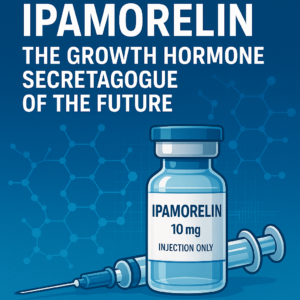Understanding Kratom: What You Need to Know
Kratom, a tropical tree native to Southeast Asia, has gained attention as a herbal remedy. It’s known for its leaves that possess psychoactive properties. Users often seek it for pain relief or energy enhancement. However, as with any substance, it’s essential to understand potential side effects, including headaches.
What is Kratom?
Kratom (Mitragyna speciosa) belongs to the coffee family. People have used its leaves for centuries in traditional medicine. The leaves can be chewed, dried, or brewed into tea. Users report varying effects based on dosage and strains. For instance, low doses may provide stimulation, while higher doses may induce sedation.
In some regions, kratom has become popular for managing chronic pain, anxiety, and even withdrawal symptoms. However, research into its safety and effectiveness remains limited. Consequently, a range of potential side effects exists, and headaches are one of the most commonly reported issues.
How Does Kratom Work?
Kratom’s active compounds, mainly mitragynine and 7-hydroxymitragynine, interact with opioid receptors in the brain. This interaction can result in feelings of euphoria or pain relief. Different kratom strains can produce varying effects. For example:
- White Vein Kratom: Known for its stimulating effects, often used for energy and focus.
- Green Vein Kratom: Provides a balance between stimulation and relaxation.
- Red Vein Kratom: Typically more sedative, popular for pain relief and relaxation.
Understanding these dynamics can help users make informed decisions. However, it’s important to consider the associated side effects.
Common Side Effects of Kratom
Kratom use can lead to several side effects, which can vary from person to person. Some of the more frequently reported side effects include:
- Nausea
- Dizziness
- Constipation
- Dry mouth
- Changes in appetite
Among these, headaches stand out as particularly concerning for many users. Let’s explore why kratom might lead to headaches.
Can Kratom Cause Headaches?
The short answer is yes—kratom can contribute to headaches for some users. Various factors come into play, including dosage, strain, and individual body chemistry. Here are some possible explanations:
1. Dehydration
Some users may neglect proper hydration while taking kratom. Kratom can have diuretic effects, which means it may promote urination. Dehydration can lead to headaches, especially if users aren’t drinking enough fluids. Staying hydrated is crucial.
2. Withdrawal Symptoms
Regular kratom use can lead to dependence. If a user reduces or stops taking kratom abruptly, withdrawal symptoms may occur. Headaches are a common withdrawal symptom, often experienced alongside fatigue and irritability.
Dosage: How Much is Too Much?
Dosage plays a critical role in the effects of kratom. While some users may find relief at lower doses, higher doses can amplify side effects, including headaches. Here’s a quick breakdown of suggested dosages:
| Dosage Range | Effects |
|---|---|
| 1-5 grams | Mild stimulation, increased focus |
| 5-15 grams | Pain relief, sedation |
| 15+ grams | Increased risk of side effects, including headaches |
It’s essential to note that everyone’s biology is different. Some may experience headaches even at low doses, while others can take higher amounts without issue.
Types of Headaches: Identifying the Cause
Not all headaches are the same. Identifying the type of headache can help determine the underlying cause. Here are some common types of headaches related to kratom use:
Tension Headaches
These are often characterized by a dull, aching sensation. Stress and muscle tension commonly trigger them. If kratom use leads to increased tension, users might experience these headaches, especially if they’re also feeling anxious.
Migraines
More severe headaches might be migraines. These usually come with additional symptoms, such as nausea or sensitivity to light. Some users report migraine-like symptoms after using kratom, although this varies widely.
Strategies to Prevent Kratom-Induced Headaches
If you’re using kratom and want to minimize headaches, consider these strategies:
1. Stay Hydrated
Drink plenty of water. Aim for at least eight 8-ounce glasses daily, more if you engage in physical activity. Monitoring your fluid intake can prevent dehydration-related headaches.
2. Start Low and Go Slow
If you’re new to kratom, begin with a low dose. Gradually increase it while observing how your body reacts. This approach helps minimize potential side effects.
3. Keep a Journal
Tracking your kratom use can be beneficial. Note your dosages, strains used, and any side effects experienced. Over time, this information can help you identify patterns and potential triggers for headaches.
The Role of Strain Selection
As previously mentioned, different kratom strains provide varied effects. Selecting the right strain can play a role in headache avoidance:
- Avoid High-Dose Red Vein Strains: If you are prone to headaches, it may be wise to limit or avoid red vein varieties, which tend to be more sedative.
- Experiment with Green or White Vein: Some users find that green and white strains provide energy without the headaches associated with heavier strains.
When to Consult a Healthcare Professional
If you frequently experience headaches after using kratom, seek professional advice. A healthcare provider can help assess your situation and recommend the best course of action. This is particularly important if headaches are accompanied by severe symptoms like:
- Persistent nausea
- Severe dizziness
- Visual disturbances
Potential Risks and Concerns with Kratom Use
Kratom use carries potential risks and concerns that go beyond headaches. Users should be aware of these:
- Dependence: Regular kratom use can lead to physical dependence. If you find yourself needing more to achieve the same effect, it may be time to reconsider.
- Legal Status: Kratom legality varies by country and region. Check local laws before using or purchasing products.
- Lack of Regulation: Many kratom products are unregulated. This raises concerns about dosage accuracy and the presence of contaminants.
Alternatives to Kratom for Pain Relief
If you’re considering moving away from kratom due to headaches or other concerns, several alternatives exist for pain relief:
- Over-the-Counter Medications: NSAIDs like ibuprofen and acetaminophen can be effective for mild to moderate pain.
- Physical Therapy: Techniques like massage and stretching can help relieve pain without medication.
- Natural Remedies: Consider herbal options like turmeric, ginger, or peppermint, which can offer relief for certain types of pain and headaches.
Conclusion
Understanding the relationship between kratom and headaches is vital for users. While kratom can be helpful for some, it’s not without potential side effects. Stay informed and be proactive about your health. If headaches persist, consider consulting a healthcare professional for guidance.
FAQs
1. Can beginners experience headaches from kratom?
Yes, beginners might experience headaches, especially if they take too high a dose or are dehydrated.
2. Are certain kratom strains more likely to cause headaches?
Yes, red vein strains can be more sedative and could heighten the risk of headaches for some users.
3. What is the best way to hydrate while using kratom?
Drink plenty of water throughout the day. Consider using electrolyte drinks if you’re urinating more often.
4. How can I identify if my headache is from kratom?
Keep a journal of your kratom use and any resulting headaches to see if there is a pattern.
5. Is kratom safe to use with other medications?
Always consult a healthcare professional before combining kratom with other medications.
6. What should I do if I have a headache after using kratom?
Rest, hydrate, and consider taking over-the-counter pain relief if necessary.
7. Can withdrawing from kratom cause headaches?
Yes, withdrawal symptoms, including headaches, can occur when reducing or stopping kratom use.
8. How long do kratom-induced headaches usually last?
Duration can vary, but headaches typically resolve within a few hours if linked to dehydration or misuse.
9. Are there any long-term studies on kratom and its effects?
Research on kratom’s long-term effects is still limited. Ongoing studies may provide more insights in the future.
10. Is kratom addictive?
Yes, kratom can be addictive for some people, leading to physical dependence over time.







